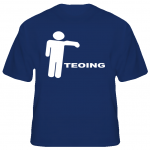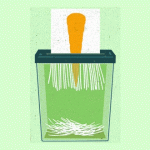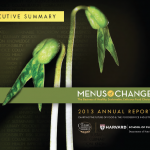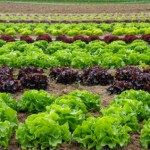As a student in CPS’ Doctor of Law and Policy (DLP) program, I’m learning about the ways in which a wide variety of public and related institutions formulate and execute policy. I spent 20 years in the U.S. Navy and have devoted my career to regulatory compliance and risk management for the information technology industry. My classmates come from many ... Read More »
Category Archives: NU College of Professional Studies
Feed Subscription4 Reasons to be Happy about Teaching with no Tenure
One of my dissertation advisors was very concerned when I accepted a full-time faculty appointment as an assistant academic specialist here at the Northeastern College of Professional Studies (CPS). The idea of academic specialists’ non-tenured faculty status can be perplexing and we are not always viewed as equal to tenured/tenure track faculty. My experience at CPS, however, has been that ... Read More »
5 Tips for Grad School Success
In just under two months, I’ll be receiving a master’s degree in Corporate and Organizational Communication, with a concentration in social media, from the Northeastern University College of Professional Studies (CPS). Based on my experiences and a desire to help others get the most out of their education, I’ve put together these five short tips for how you can get ... Read More »
Bridging the gap: students talk about connecting online learning to real-world workplaces
Last month, Northeastern University College of Professional Studies launched an innovative pilot class called Online Experiential Learning for Working Professionals. The class—a first of its kind—gives working graduate students who are pursuing their degrees online to directly translate what they learn in class to the workplace. How? By giving them the chance to craft and complete a relevant project that ... Read More »
Catfishing your way to a master’s degree?
As we move education into a realm that makes greater use of online learning and we ponder how we award traditional course credit for courses taken in the MOOC model, an important consideration is our ability to verify that the person receiving the credit truly is the person doing the work. An obvious advantage that the traditional face-to-face education model ... Read More »
Observations on Online Experiential Learning
The following are excerpts from a paper I’ve been writing with my colleague Anne Hammer at the Northeastern College of Professional Studies (CPS). Experiential education is a holistic philosophy with carefully chosen experiences supported by reflection, critical analysis and syntheses. In more simplistic terms, experiences are structured to require the learner to take initiative, make decisions and be accountable for ... Read More »
Self-motivating assignments
This post isn’t about grading, but I have to tell you: Grading is the bane of my existence. There, I’ve said it—publicly—and it feels good. If I could discover how to teach without all the grading, my outlook would skyrocket. One of the biggest reasons I feel this way is because grading 20 versions of the same assignment is, well, ... Read More »
Experiential learning for online, working professionals: a pilot program
Have you ever thought about what portion of your job you learned “informally” versus “formally”? You’ll probably be impressed (with yourself) when you realize that most of what you learned at your job was self-taught. You might even think, “my employer is lucky I’m so resourceful and smart and can figure out what I am doing on my own. In ... Read More »
Love (of Food), American Style
Last week, we published a post that covered some current activity regarding the channels of food production. On one end of the spectrum, there were large, industry-wide changes (new, national FDA laws); on the other end were smaller, more personal goings-on (local grassroots initiatives by Maine farmers). Now, somewhere in the middle of it all, lands a new report from ... Read More »
(Whose) Farm to (Your) Table? Farmers and Federal Food Regulations
Who’s in charge of your food? Before it reaches your plate, that is. The quick, over-arching answer is the FDA. But the actual, real-world answer is a bit more complex. This Boston Globe piece by Deborah Kotz discusses the recent changes in some of the regulations that affect the ways food is produced, processed, packaged and sold—and some of the ... Read More »










